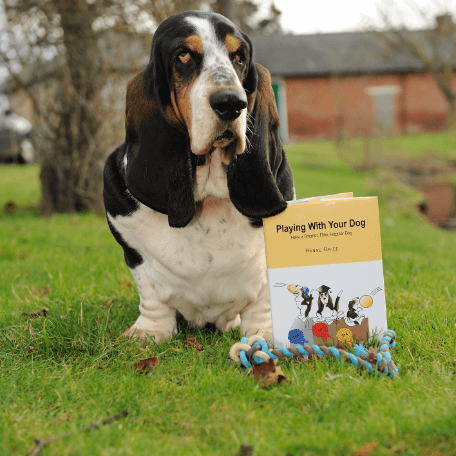The research charity Medical Detection Dogs is partnering with Manchester University to determine whether dogs can sniff out Parkinson’s disease.
In recent years, dogs have been reported to alert their owners to health problems that, in some cases, have turned out to be cancer. (Click here to read about my personal experience of this). Consequently, scientists have tested the theory that diseases could carry their own signature scent; Willis et al. (2004) study involved detection in urine, whilst Hackner et al. (2016) tested detection in the breath of cancer patients and those in remission, resulting in the dogs making 78.6% correct identifications.
Now scientists will test the noses of three dogs – a Cocker Spaniel and two Labradors – against skin swabs from 700 people to see if the dogs can hone in on the molecules released before Parkinson’s develops. The idea that Parkinson’s causes the body to emit a distinguishable scent comes from evidence presented by Joy Milne, who claimed her husband’s odour altered over the years before he was diagnosed with the condition. Researchers conducted tests with Joy, finding she was able to identify individuals with Parkinson’s from those who did not have the condition from skin swabs.
Parkinson’s affects approximately 120,000 people in the UK with around 10,000 people diagnosed with the condition, which deteriorates neurons in the brain effecting movement and speech (Brain Research Trust, 2017), each year. Typically, these symptoms only show once more than half of the relevant cells have deteriorated and, as yet, there is no definitive test. The new study, funded by Parkinson’s UK, will use mass spectrometers to split samples into component molecules, enabling the researchers to determine whether a key chemical indicator is involved – and – detectable to dogs. This study builds on pilot research conducted in 2016 by trainer Lisa Holt from the United States; six dogs were trained to respond to a scent sample from someone with Parkinson’s with five of the six dogs achieving an 80+% level of correct responses, and three of the dogs indicating 90+% level of correct response.
If the results from this UK study prove successful, this may aid future development of new tests to slow or even stop the onset of this neurological disease.
Did you know?
Dogs have an incredible olfactory system compared to humans; the average human has around 5 million hair cells up their nose, your dog has approximately 300 million (Grice, 2010). The average dog has such acutely sensitive scenting ability that Fido can identify smells so diluted that even scientific instruments cannot measure them. Nevertheless, scenting ability does vary across dog breeds; Scott and Fuller (1965) placed untrained Beagles, Fox Terriers, and Scottie dogs in a one-acre field and released a mouse. It took the Beagles around a minute to locate the mouse and the terriers fifteen minutes – the Scotties never found the mouse!
References
Hackner, P. Errhalt, M., Mueller, R., Speiser, M., Marzluf, B.A., Schulheim, A., Schenk, P., Bilek, J., Doll, T. (2016) Canine scent detection for the diagnosis of lung cancer in a screening-like situation. Journal of Breath Research 10(4)
Grice, H. (2010) Playing With Your Dog. Milton Keynes: Xlibris
Scott., J.P and Fuller, J.L (1965) Genetics and the Social Behavior of the Dog. Chicago: The University of Chicago Press
Willis, C.M., Church, S.M., Guest, C.M. (2004) Olfactory detection of human bladder cancer by dogs: proof of principle study. British Medical Journal 329 (7468) pp.712
Learn more about our classes

Get Hanne's Book
Playing With Your Dog will help any dog owner work out the games that are best suited for their pet to play throughout his life, from puppyhood to old age. The book also shares some tricks for all ages, group activities, and recommended toys that dogs will enjoy.
























